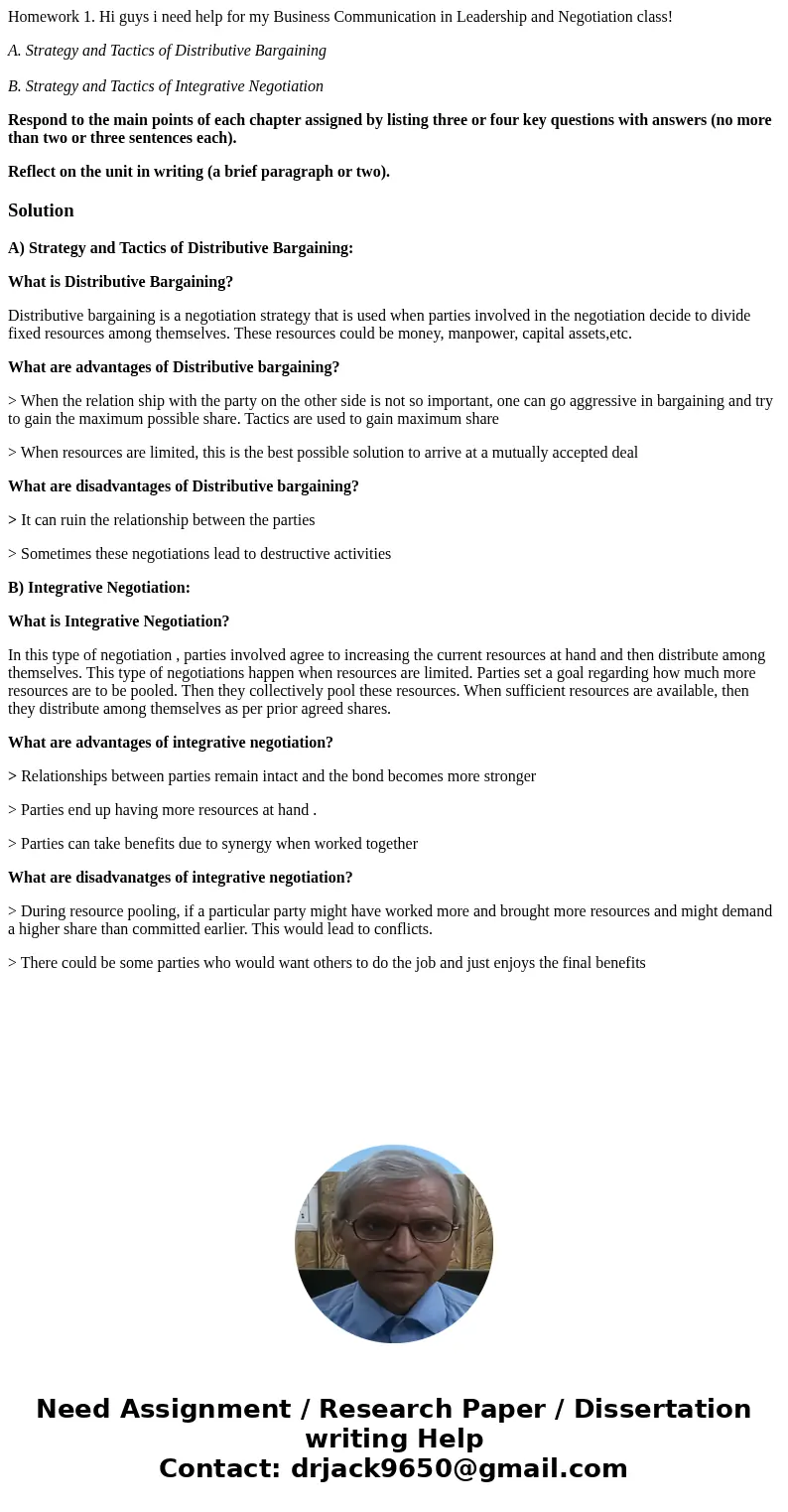Homework 1 Hi guys i need help for my Business Communication
Homework 1. Hi guys i need help for my Business Communication in Leadership and Negotiation class!
A. Strategy and Tactics of Distributive Bargaining
B. Strategy and Tactics of Integrative Negotiation
Respond to the main points of each chapter assigned by listing three or four key questions with answers (no more than two or three sentences each).
Reflect on the unit in writing (a brief paragraph or two).
Solution
A) Strategy and Tactics of Distributive Bargaining:
What is Distributive Bargaining?
Distributive bargaining is a negotiation strategy that is used when parties involved in the negotiation decide to divide fixed resources among themselves. These resources could be money, manpower, capital assets,etc.
What are advantages of Distributive bargaining?
> When the relation ship with the party on the other side is not so important, one can go aggressive in bargaining and try to gain the maximum possible share. Tactics are used to gain maximum share
> When resources are limited, this is the best possible solution to arrive at a mutually accepted deal
What are disadvantages of Distributive bargaining?
> It can ruin the relationship between the parties
> Sometimes these negotiations lead to destructive activities
B) Integrative Negotiation:
What is Integrative Negotiation?
In this type of negotiation , parties involved agree to increasing the current resources at hand and then distribute among themselves. This type of negotiations happen when resources are limited. Parties set a goal regarding how much more resources are to be pooled. Then they collectively pool these resources. When sufficient resources are available, then they distribute among themselves as per prior agreed shares.
What are advantages of integrative negotiation?
> Relationships between parties remain intact and the bond becomes more stronger
> Parties end up having more resources at hand .
> Parties can take benefits due to synergy when worked together
What are disadvanatges of integrative negotiation?
> During resource pooling, if a particular party might have worked more and brought more resources and might demand a higher share than committed earlier. This would lead to conflicts.
> There could be some parties who would want others to do the job and just enjoys the final benefits

 Homework Sourse
Homework Sourse